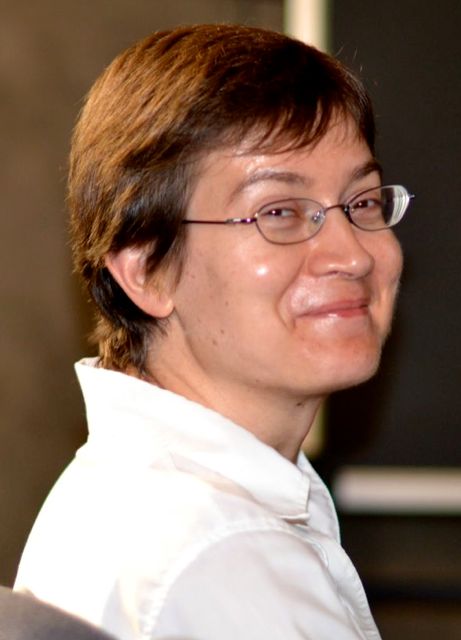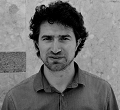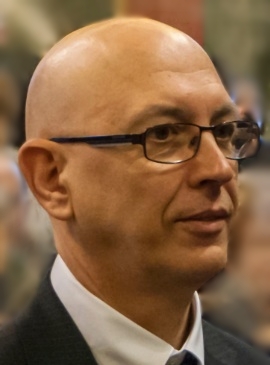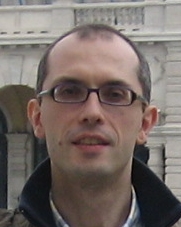Studying at the University of Verona
Here you can find information on the organisational aspects of the Programme, lecture timetables, learning activities and useful contact details for your time at the University, from enrolment to graduation.
Academic calendar
The academic calendar shows the deadlines and scheduled events that are relevant to students, teaching and technical-administrative staff of the University. Public holidays and University closures are also indicated. The academic year normally begins on 1 October each year and ends on 30 September of the following year.
Course calendar
The Academic Calendar sets out the degree programme lecture and exam timetables, as well as the relevant university closure dates..
| Period | From | To |
|---|---|---|
| I sem. | Oct 1, 2014 | Jan 30, 2015 |
| II sem. | Mar 2, 2015 | Jun 12, 2015 |
| Session | From | To |
|---|---|---|
| Sessione straordinaria appelli d'esame | Feb 2, 2015 | Feb 27, 2015 |
| Sessione estiva appelli d'esame | Jun 15, 2015 | Jul 31, 2015 |
| Sessione autunnale appelli d'esame | Sep 1, 2015 | Sep 30, 2015 |
| Session | From | To |
|---|---|---|
| Sessione invernale appello di laurea 2015 | Mar 19, 2015 | Mar 19, 2015 |
| Sessione estiva appello di laurea 2015 | Jul 15, 2015 | Jul 15, 2015 |
| Sessione autunnale appello di laurea 2015 | Oct 21, 2015 | Oct 21, 2015 |
| Sessione invernale appello di laurea 2016 | Mar 17, 2016 | Mar 17, 2016 |
| Period | From | To |
|---|---|---|
| Vacanze di Natale | Dec 22, 2014 | Jan 6, 2015 |
| Vacanze di Pasqua | Apr 2, 2015 | Apr 7, 2015 |
| Ricorrenza del Santo Patrono | May 21, 2015 | May 21, 2015 |
| Vacanze estive | Aug 10, 2015 | Aug 16, 2015 |
Exam calendar
Exam dates and rounds are managed by the relevant Science and Engineering Teaching and Student Services Unit.
To view all the exam sessions available, please use the Exam dashboard on ESSE3.
If you forgot your login details or have problems logging in, please contact the relevant IT HelpDesk, or check the login details recovery web page.
Should you have any doubts or questions, please check the Enrollment FAQs
Academic staff
 mila.dallapreda@univr.it
mila.dallapreda@univr.it

Residori Stefania
 stefania.residori@univr.it
stefania.residori@univr.it
Study Plan
The Study Plan includes all modules, teaching and learning activities that each student will need to undertake during their time at the University.
Please select your Study Plan based on your enrollment year.
1° Year
| Modules | Credits | TAF | SSD |
|---|
2° Year activated in the A.Y. 2015/2016
| Modules | Credits | TAF | SSD |
|---|
| Modules | Credits | TAF | SSD |
|---|
| Modules | Credits | TAF | SSD |
|---|
| Modules | Credits | TAF | SSD |
|---|
Tre insegnamenti a scelta Legend | Type of training activity (TTA)
TAF (Type of Educational Activity) All courses and activities are classified into different types of educational activities, indicated by a letter.
Algorithms - COMPLESSITÀ (2014/2015)
Teaching code
4S02709
Teacher
Credits
6
Language
Italian
Scientific Disciplinary Sector (SSD)
ING-INF/05 - INFORMATION PROCESSING SYSTEMS
Period
II sem. dal Mar 2, 2015 al Jun 12, 2015.
To show the organization of the course that includes this module, follow this link: Course organization
Learning outcomes
The goal of this module is to introduce students to the main aspects of the computational complexity theory, and, in particular, to the NP-completeness theory and to the computational analysis of problems with respect to their approximability.
Recommended Prerequisites
-------------------------
To attend the course in a productive way, a student should be confident with the following topics:
1. Basic data structures as list, stack, queue, tree, heap.
2. Graph representation and fundamental graph algorithms:
2.1 Graph visit: BFS, DFS.
2.2 Topological ordering. Connected component.
2.3 Minimal spanning tree. Kruskal and Prim algorithm.
2.4 Single-source shortest path: Dijkstra algorithm and Bellman-Ford one.
2.5 All-pairs shortest path: Floyd-Warshall algorithm and Johnson one.
2.6 Max flow: Ford-Fulkerson algorithm.
A recommended book to revise the above topics is ``Introduction to Algorithms" di T. H. Cormen, C. E. Leiserson, R. L. Rivest e C. Stein (3 ed.).
Program
Introduction.
Computational models, computational resources, efficient algorithms and tractable problems.
Computational models
Turing Machine (TM): definition, behavior, configuration, production and computation concepts. TM examples.
TM and languages: difference between accepting and deciding a language. TM extension: multi-tape TM (k-TM).
Time Complexity
Time computational resource. Computational class TIME(). Theorem about polynomial relation between k-TM computations and TM ones (sketch of proof).
Introduction to Random Access Machine (RAM) computational model: configuration, program and computation concepts.
RAM: definition of computation time using uniform cost criterion or logarithmic cost one.
Example of a RAM program that determines the product of two integers.
Theorem about time cost for simulating a TM by a RAM program (sketch of the proof).
Theorem about time cost for simulating a RAM program by a TM (only the thesis).
Sequential Computation Thesis and its consequences.
Linear Speed-up Theorem and its consequences.
P Computational Class.
Problems in P: PATH, MAX FLOW, PERFECT MATCHING.
Extension of TM: non-deterministic TM (NTM).
Time resource for k-NTM. NTIME() computational class.
Example of non-deterministic algorithm computable by a NTM: algorithm for Satisfiability (SAT).
Relation between TM and NTM.
NP Computational Class.
Relation between P and NP. Example of a problem into NP: Travel-salesman Problem (TSP).
An alternative characterization of NP: polynomial verifiers.
EXP Computation Class.
Space Complexity.
Space complexity concept. TM with I/O. Computational Classes: SPACE() and NSPACE().
Compression Theorem.
Computational Classes: L and NL.
Example of problems: PALINDROME ∈ L and PATH ∈ NL.
Theorems about relations between space and time for a TM with I/O.
Relations between complexity classes.
Proper function concept and example of proper functions.
Borodin Gap Theorem.
Reachability method. Theorem about space-time classes: NTIME(f(n)) ⊆ SPACE(f(n)), NSPACE(f(n)) ⊆ TIME(k^(log n+f(n))).
Universal TM.
The H_f set.
Lemma 1 and 2 for time hierarchy theorem.
Time Hierarchy Theorem: strict and no-strict versions.
P ⊂ EXP Corollary.
Space Hierarchy Theorem. L ⊂ PSPACE Corollary.
Savitch Theorem. SPACE(f(n))=SPACE(f(n)^2) corollary. PSPACE=NPSPACE Corollary.
Reductions and completeness.
Reduction concept and logarithmic space reduction. HAMILTON PATH ≤_log SAT, PATH ≤_log CIRCUIT VALUE, CIRCUIT SAT ≤_log SAT.
Language completeness concept.
Closure concept with respect to reduction.
Class reduction of L, NL, P, NP, PSPACE and EXP.
Computation Table concept.
Theorem about P-completeness of CIRCUIT VALUE problem.
Cook Theorem: an alternative proof.
Gadget concept and completeness proof of: INDEPENDENT SET, CLIQUE, VERTEX COVER and others.
Examination Methods
The examination consists of a written test. The grade in this module is worth 1/2 of the grade in the Algorithms examination.
Type D and Type F activities
Documents and news
-
 PIANO DIDATTICO LM-18 LM-32
(octet-stream, it, 18 KB, 21/09/18)
PIANO DIDATTICO LM-18 LM-32
(octet-stream, it, 18 KB, 21/09/18)
Modules not yet included
Career prospects
Module/Programme news
News for students
There you will find information, resources and services useful during your time at the University (Student’s exam record, your study plan on ESSE3, Distance Learning courses, university email account, office forms, administrative procedures, etc.). You can log into MyUnivr with your GIA login details: only in this way will you be able to receive notification of all the notices from your teachers and your secretariat via email and soon also via the Univr app.
Graduation
Deadlines and administrative fulfilments
For deadlines, administrative fulfilments and notices on graduation sessions, please refer to the Graduation Sessions - Science and Engineering service.
Need to activate a thesis internship
For thesis-related internships, it is not always necessary to activate an internship through the Internship Office. For further information, please consult the dedicated document, which can be found in the 'Documents' section of the Internships and work orientation - Science e Engineering service.
Final examination regulations
List of theses and work experience proposals
Attendance
As stated in the Teaching Regulations for the A.Y. 2022/2023, attendance at the course of study is not mandatory.
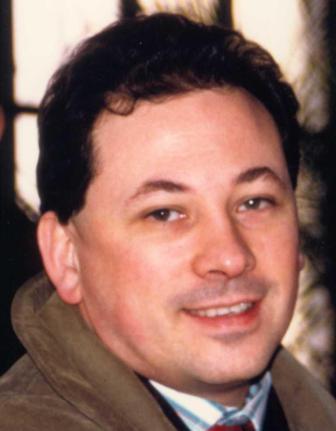
 +39 045 802 7980
+39 045 802 7980

